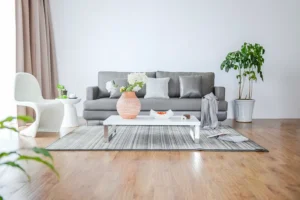What are The Benefits of Gardening Indoors
Gardening is often associated with sprawling outdoor spaces, lush backyards, and sunny patios, but what if you don’t have access to these? Enter indoor gardening—a growing trend where plants are cultivated inside homes, offices, and other indoor spaces. Indoor gardening is more than a way to add a splash of green to your décor; it can also profoundly impact your physical, mental, and emotional well-being.
Whether you’re a seasoned gardener or just looking to bring a bit of nature inside, the benefits of indoor gardening are extensive. In this blog, we’ll explore why indoor gardening is not just a hobby, but a lifestyle that can enhance your home environment and personal health in remarkable ways.
1. Improved Air Quality
One of the most well-known benefits of indoor plants is their ability to purify the air. Many common indoor plants act as natural air filters, removing toxins and releasing oxygen into the atmosphere. With modern homes often full of synthetic materials, chemicals, and pollutants from cleaning products, paints, or furniture, having plants indoors can help reduce harmful airborne substances.
How Plants Purify Air:
- Absorb Pollutants: Indoor plants can absorb toxins such as formaldehyde, benzene, and ammonia, which are commonly found in household items. NASA’s Clean Air Study found that plants like peace lilies, spider plants, and pothos are particularly effective at removing indoor air pollutants.
- Increase Oxygen Levels: Through photosynthesis, plants convert carbon dioxide into oxygen, helping to refresh the air we breathe. This can be especially beneficial in tightly sealed indoor environments.
- Improve Humidity: Plants naturally release moisture into the air through a process called transpiration. By increasing humidity levels, indoor plants can help reduce dry skin, irritated respiratory systems, and even decrease the likelihood of catching colds.
2. Boosting Mental Health and Reducing Stress
The presence of plants indoors has been shown to significantly improve mental health and reduce stress. Studies have revealed that being around plants or engaging in gardening activities can lower levels of cortisol, the stress hormone, and elevate mood.
Mental Health Benefits of Indoor Gardening:
- Stress Relief: Simply spending time with indoor plants or caring for them can provide a calming effect, reducing feelings of anxiety and stress. Even the visual aesthetics of plants can contribute to a serene environment.
- Improved Focus and Productivity: Indoor plants have been linked to increased concentration and productivity in workplaces. The presence of greenery can help reduce mental fatigue, boost creativity, and improve overall work performance.
- Combatting Depression: Indoor gardening can offer therapeutic benefits to individuals struggling with depression. The routine of caring for plants, seeing them grow, and enjoying their beauty can help create a sense of accomplishment and purpose.
3. Access to Fresh Herbs and Vegetables Year-Round
One of the most practical benefits of indoor gardening is the ability to grow your own fresh herbs and vegetables, regardless of the season or climate. This can lead to a healthier diet, with convenient access to organic, home-grown produce right at your fingertips.
Benefits of Growing Edible Plants Indoors:
- Fresh, Pesticide-Free Produce: When you grow herbs and vegetables indoors, you can control the growing environment, ensuring that your food is free from harmful pesticides and chemicals.
- Convenience: Imagine being able to pluck fresh basil, mint, or parsley directly from your kitchen windowsill while cooking. Indoor gardening allows you to harvest what you need, when you need it.
- Sustainable Living: Growing your own food indoors reduces the need for store-bought produce, which often travels long distances and is wrapped in unnecessary packaging. Indoor gardening promotes sustainability by reducing your carbon footprint.
Some easy-to-grow herbs and vegetables for indoor gardening include:
- Basil
- Mint
- Chives
- Lettuce
- Spinach
- Cherry tomatoes
By incorporating an indoor herb or vegetable garden into your home, you not only enhance your meals but also promote a more sustainable and self-sufficient lifestyle.
4. Therapeutic Benefits of Indoor Gardening
Gardening has long been known to have therapeutic effects on the mind and body, and indoor gardening is no exception. Many people find peace and mindfulness in the routine of tending to plants. Whether it’s watering, pruning, or repotting, the simple acts of caring for plants can serve as a form of meditation.
Indoor Gardening as Therapy:
- Mindfulness and Relaxation: Indoor gardening helps promote mindfulness, which is the practice of being present and fully engaged in the moment. Tending to your plants allows you to disconnect from the chaos of daily life and focus on the small, intentional actions of care.
- Cognitive Benefits: Studies have shown that indoor gardening can help improve cognitive function, particularly in older adults. Gardening activities stimulate the brain, improve memory, and encourage problem-solving.
- Physical Exercise: While not as physically demanding as outdoor gardening, indoor gardening still offers mild physical activity. Activities such as repotting plants, moving pots, and pruning provide gentle exercise that can improve hand strength, dexterity, and coordination.
5. Enhancing Home Aesthetics and Interior Design
Indoor plants are an excellent way to elevate your home décor and create a more inviting, aesthetically pleasing environment. Whether you’re going for a minimalist look or want to create a jungle-like atmosphere, plants can complement any interior design style.
Aesthetic Benefits of Indoor Plants:
- Natural Beauty: Plants add natural beauty and color to indoor spaces, breaking up the monotony of solid walls and furniture. A well-placed plant can become a focal point of a room or serve as a lush accent to your décor.
- Versatile Décor: From small succulents to towering fiddle leaf figs, there are indoor plants to suit every space and taste. You can place plants on shelves, hang them from the ceiling, or position them in corners to fill empty spaces.
- Improved Room Ambiance: Plants have the unique ability to make spaces feel more comfortable and relaxing. Whether you’re looking to create a tranquil bedroom or a lively living room, indoor plants can help you achieve the right ambiance.
6. Improved Sleep Quality
Certain indoor plants can contribute to better sleep by purifying the air and creating a calming atmosphere. In fact, plants such as lavender and jasmine are known for their soothing scents, which can promote relaxation and improve sleep quality.
Plants That Improve Sleep:
- Lavender: Known for its calming scent, lavender can help reduce stress and anxiety, making it easier to fall asleep. While lavender is typically grown outdoors, it can thrive indoors with proper care.
- Jasmine: Jasmine has a sweet, pleasant fragrance that has been shown to reduce anxiety and improve sleep quality. Keeping a jasmine plant in your bedroom can create a calming environment.
- Snake Plant: This hardy succulent releases oxygen at night, improving air quality and helping you breathe more easily while you sleep.
By incorporating these plants into your bedroom, you can create a restful environment that promotes better sleep and overall well-being.
7. Teaching Responsibility and Patience
Indoor gardening can also be a valuable learning experience, especially for children. Caring for plants teaches responsibility, patience, and consistency, as plants require regular attention to thrive. It’s a great way to introduce kids to the natural world and instill a sense of responsibility in a fun and interactive way.
Educational Benefits of Indoor Gardening:
- Responsibility: Children learn to care for a living thing by watering, pruning, and monitoring the health of their plants. It gives them a sense of ownership and accomplishment as they see their plants grow.
- Patience and Delayed Gratification: Plants don’t grow overnight, and watching them grow teaches patience and the value of delayed gratification. Children will learn that time and effort are required to see the fruits of their labor.
- Science and Nature: Indoor gardening can also be a fun science lesson. Kids can learn about photosynthesis, plant anatomy, and the water cycle while caring for their indoor plants.

8. Creating a Sustainable and Eco-Friendly Home
Indoor gardening is a simple yet effective way to make your home more eco-friendly. Not only do plants help improve air quality, but they also contribute to a more sustainable lifestyle by promoting environmental consciousness.
Sustainability Benefits:
- Reduced Carbon Footprint: By growing your own herbs and vegetables, you reduce your reliance on store-bought produce that often comes with a significant carbon footprint. Indoor gardening minimizes the need for transportation and packaging.
- Recycling and Upcycling: Indoor gardening encourages creative ways to recycle and upcycle materials. For example, you can use old jars, bottles, or cans as planters, or compost kitchen scraps to create nutrient-rich soil for your plants.
- Promoting Biodiversity: Even small-scale indoor gardening can contribute to biodiversity by introducing a variety of plant species into your home. You can also create microhabitats for beneficial insects like bees and butterflies if you grow flowering plants.
9. Year-Round Gardening Opportunities
Indoor gardening isn’t restricted by seasons, which means you can enjoy gardening year-round. Even in the dead of winter, you can cultivate plants inside your home, providing a continuous connection to nature.
Year-Round Benefits:
- Climate-Controlled Environment: Since indoor plants are protected from harsh weather conditions, you can grow a wide variety of plants without worrying about frost, extreme heat, or heavy rainfall.
- Extended Growing Seasons: For plants that normally have a limited growing season outdoors, indoor gardening allows you to extend their lifespan and enjoy fresh herbs, vegetables, or flowers for a longer period.
Short Summary
The benefits of indoor gardening extend far beyond aesthetics, offering improvements to your health, well-being, and even your home’s environment. Whether you’re looking to purify your air, reduce stress, grow your own food, or simply bring a touch of nature indoors, indoor gardening is a rewarding and accessible activity that anyone can enjoy.
With minimal space and a little effort, you can create a green oasis that enhances your home and enriches your life. So why wait? Start your indoor garden today and begin reaping the many benefits of bringing nature inside!


